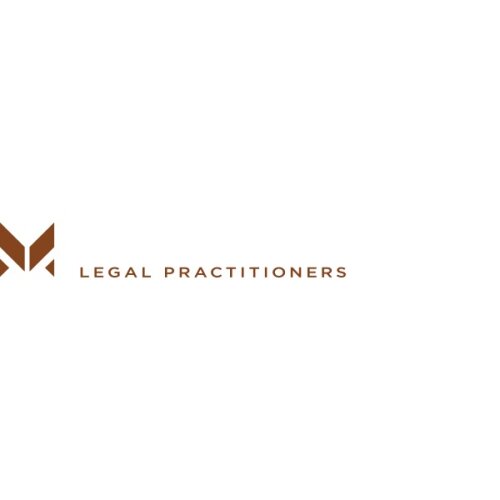Best Admiralty & Maritime Lawyers in Lusaka
Share your needs with us, get contacted by law firms.
Free. Takes 2 min.
List of the best lawyers in Lusaka, Zambia
About Admiralty & Maritime Law in Lusaka, Zambia
Admiralty and Maritime law in Lusaka, Zambia governs legal disputes and issues that arise on navigable waters. This area of law covers a wide range of matters including shipping, cargo disputes, marine pollution, salvage operations, and more. Given Zambia's landlocked nature, Admiralty and Maritime law predominantly applies to international trade and transport conducted through rivers or lakes within the country.
Why You May Need a Lawyer
You may need a lawyer specializing in Admiralty and Maritime law in Lusaka if you are involved in a marine or shipping-related dispute, need assistance with contracts or agreements related to maritime activities, or require legal guidance on regulations and compliance in the maritime industry. Lawyers with expertise in this field can help navigate the complex legal issues that may arise and protect your rights.
Local Laws Overview
In Lusaka, Zambia, Admiralty and Maritime law are primarily governed by the Merchant Shipping Act and other relevant legislation. It is essential to be aware of the regulations concerning vessel registration, crew licensing, pollution prevention, and liability in case of maritime accidents. Understanding these laws can significantly impact how disputes are resolved and prevent legal consequences.
Frequently Asked Questions
1. What is the difference between Admiralty law and Maritime law?
Admiralty law deals with legal issues related to ships, shipping, and navigation, while Maritime law covers a broader spectrum of issues involving the sea, including marine pollution, salvage, and marine insurance.
2. How can I register my vessel in Zambia?
Vessel registration in Zambia is regulated by the Merchant Shipping Act. To register a vessel, you must comply with the requirements set forth in the Act and submit the necessary documentation to the relevant authorities.
3. What are my rights as a seafarer in Lusaka, Zambia?
As a seafarer in Lusaka, Zambia, you are entitled to certain rights and protections under the Merchant Shipping Act, including fair wages, a safe working environment, and access to medical care. It is crucial to be aware of your rights and seek legal counsel if you believe they have been violated.
4. How can I resolve a maritime dispute in Lusaka?
Maritime disputes in Lusaka can be resolved through negotiation, mediation, arbitration, or litigation. It is advisable to consult with a lawyer specializing in Admiralty and Maritime law to determine the most appropriate course of action based on the specifics of your case.
5. What types of damages can I claim in a maritime accident case?
In a maritime accident case, you may be eligible to claim damages for medical expenses, lost wages, pain and suffering, property damage, and other related losses. An experienced Admiralty and Maritime lawyer can help you assess the extent of your damages and pursue appropriate compensation.
6. Can I be held liable for pollution caused by my vessel in Zambia?
Yes, vessel owners and operators can be held liable for pollution caused by their vessels in Zambia. It is crucial to adhere to environmental regulations and take necessary precautions to prevent pollution in order to avoid legal consequences.
7. What is the process for filing a maritime insurance claim in Lusaka?
The process for filing a maritime insurance claim in Lusaka involves notifying your insurance provider of the incident, providing relevant documentation and evidence, and cooperating with the insurer's investigation. It is recommended to seek legal advice to ensure your rights are protected throughout the claims process.
8. Are there specific regulations for cargo transportation in Lusaka, Zambia?
Yes, there are regulations governing cargo transportation in Lusaka, Zambia, to ensure the safe and efficient movement of goods. It is essential to comply with these regulations to avoid legal issues and ensure the timely delivery of cargo.
9. Can a lawyer help me with drafting maritime contracts in Lusaka?
Yes, a lawyer with expertise in Admiralty and Maritime law can assist you in drafting maritime contracts, including charter parties, bills of lading, and other agreements related to maritime activities. Having a lawyer review and negotiate contracts can help protect your interests and avoid potential disputes.
10. How do I find a reputable Admiralty and Maritime lawyer in Lusaka, Zambia?
To find a reputable Admiralty and Maritime lawyer in Lusaka, you can seek recommendations from colleagues, conduct online research, or contact the Law Association of Zambia for referrals. It is essential to choose a lawyer with experience in handling maritime cases and a strong track record of success.
Additional Resources
If you require legal assistance in Admiralty and Maritime law in Lusaka, Zambia, you may find the following resources helpful: - Law Association of Zambia (LAZ) - Zambia Maritime Administration Department (ZAMAD) - National Assembly of Zambia website for access to relevant legislation
Next Steps
If you need legal assistance in Admiralty and Maritime law in Lusaka, Zambia, your first step should be to contact a qualified lawyer specializing in this field. Schedule a consultation to discuss your case, review your options, and determine the best course of action to protect your rights and interests. Remember to gather any relevant documentation and information to provide to your lawyer during the initial consultation.
Lawzana helps you find the best lawyers and law firms in Lusaka through a curated and pre-screened list of qualified legal professionals. Our platform offers rankings and detailed profiles of attorneys and law firms, allowing you to compare based on practice areas, including Admiralty & Maritime, experience, and client feedback.
Each profile includes a description of the firm's areas of practice, client reviews, team members and partners, year of establishment, spoken languages, office locations, contact information, social media presence, and any published articles or resources. Most firms on our platform speak English and are experienced in both local and international legal matters.
Get a quote from top-rated law firms in Lusaka, Zambia — quickly, securely, and without unnecessary hassle.
Disclaimer:
The information provided on this page is for general informational purposes only and does not constitute legal advice. While we strive to ensure the accuracy and relevance of the content, legal information may change over time, and interpretations of the law can vary. You should always consult with a qualified legal professional for advice specific to your situation.
We disclaim all liability for actions taken or not taken based on the content of this page. If you believe any information is incorrect or outdated, please contact us, and we will review and update it where appropriate.











